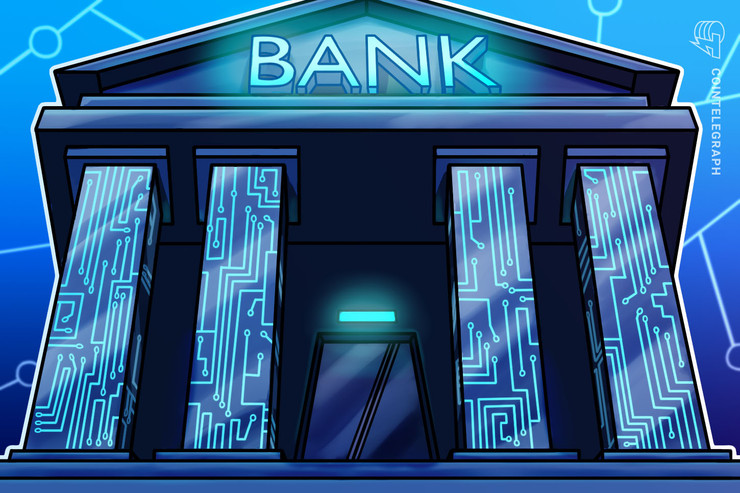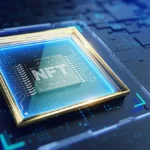Have you ever wondered about the ownership of your money in a bank? I mean, who owns the cash, you or the bank? DeFi, an acronym of Decentralised Finance, allayed your concerns by dispelling your doubts and introducing a lovely idea. DeFi says your money is yours.
DeFi has utilized blockchain technology to demonstrate this idea over time. Here, we will learn how traditional banking, built upon centralized finance, evolved into the frictionless, open, unhackable, and unbounded world of decentralized finance.
Following the 2008 Financial Crisis, many banks failed, causing many people to lose their wealth. As a result, many people are turning to developed technologies as a kind of protection because they are alarmed by the harm that the current international financial systems pose. It also affected Nigeria’s stock market at that time.
Find out what DeFi has to offer.
Table of Contents
What is Decentralized(DeFi)?

What is DeFi?
The exit from centralized finance is essentially through decentralized finance. An open, transparent, and secure financial system was sorely needed in light of recent flaws in the traditional finance sector. Through a concept based on blockchain technology, DeFi was created in response to this requirement in reality.
It is a system that incorporates the construction of financial products and services on top of a blockchain to foster or enhance the growth of an open financial system. This definition is based on the system’s dependency on the blockchain.
These economic goods and services are offered through Decentralized Applications (Dapps), most of which are set up on Ethereum platforms. EOS, TRON, Klaytn, Neo, Steem, IOST, TomoChain, Terra CHAI, Vexanium, ICON, and Chiliz Socios are more platforms.
Due to its ability to do away with the current financial bureaucracy, which strains the current economic system, decentralized finance stands out as a viable alternative to traditional finance. DeFi now gives customers the chance to regain complete control over their assets and their financial information when engaging in transactions in the international financial sector.
Thanks to decentralized finance, developers can create financial instruments that can operate digital assets without restrictions. Everything from loans to assets used as collateral or debt obligations could eventually be tokenized.
In addition, the availability and transparency of blockchain technologies can make it simple for computers and people to understand how loans are issued and repaid and how long they will last.
Read Also: The Evolution of the Fintech Industry in Nigeria
DeFi and Banking

DeFi and Banking
Decentralized finance offered opportunities for use in a variety of industries. However, this method has proved highly beneficial to the banking industry. DeFi improved the efficiency of conventional banking by closing the gaps.
Now that your chest is complete, you can officially claim ownership of your money. This is so that DeFi may examine any regulatory violation in your transactions and strip them of their rights, rendering them helpless.
Because it may offer financial services without regard to location, decentralized finance threatens traditional finance. As a result, many rural areas have had difficulty receiving traditional financing, leaving billions without access to financial services.
People in remote areas can now access financial services through their mobile devices since digital ledger technologies have been integrated into applications. As a result, DeFi claims to be successful, whereas traditional financing has failed because of this.
About 1.7 billion individuals today lack the luxury of having a bank account, which traditional financial institutions require for consumers to access their services. In addition, other conditions apply to borrowing from banks, such as needing a high credit score and enough collateral to persuade the lenders that the borrower is credit-worthy and capable of repaying the loan.
This obstacle is removed by decentralized lending and borrowing, enabling anyone can utilize their digital assets as collateral to get loans. By contributing to lending pools and receiving interest on these assets, one can also gain a yield on their investments and participate in the lending market. A bank account and creditworthiness checks are not necessary with decentralized lending and borrowing.
You need more knowledge about financial technology? Subscribe to our YouTube Channel to get premium content.
Benefits of DeFi
As earlier stated, DeFi is not simply for banking. Its use extends widely to various fields, including governance, insurance, lottery, fund management, etc.
-
Governance
In essence, governance is how cryptocurrency views corporate governance. DeFi protocols frequently incorporate governance tokens to give users voting power and a role in the protocol’s roadmap to run a project.
So naturally, numerous toolkits and Dapps have been created to aid in efficient governance and enhance current systems.
-
Insurance
An individual receives financial protection or reimbursement against losses from an insurance firm in the case of an unpleasant incident as part of the risk management technique known as insurance. People frequently buy insurance for their cars, homes, health, and lives.
But does DeFi have any decentralized insurance?
Due to the substantial potential payment, all smart contract tokens may be exposed to smart contract exploits. While most projects have had their codebases audited, we can never be sure how secure smart contracts are.
There is always the chance of a hack that could cause a loss. The hazards emphasize the necessity of getting insurance, mainly if one deals with sizable sums of money on DeFi.
-
Lottery
Innovative and innovative financial applications that democratize accessibility and do away with middlemen will develop as DeFi continues to develop. For example, lotteries can be given a DeFi twist by transferring custody of the pooled funds to a smart contract on the Ethereum Blockchain.
Due to DeFi’s modular design, it is feasible to add value by connecting a straightforward lottery Dapp to another DeFi Dapp. Participants in one DeFi Dapp that we shall examine in this book can pool their money.
The combined funds are then placed in a DeFi lending Dapp, and at predetermined intervals, the interest gained is distributed to a random winner. Once the winner is determined, lottery ticket buyers receive a refund, guaranteeing that no one loses money.
-
Fund management
Fund management involves keeping an eye on your assets and controlling their cash flow to maximize the return on your investments. Active and passive fund management are the two primary categories. With active fund management, a management team makes investment choices to outperform a specific benchmark.
The goal of passive fund management, which lacks a management team, is to match the performance of a certain benchmark closely.
Various DeFi implementations are now supporting decentralized passive fund management. Users may easily follow the management of their funds and comprehend the costs they will incur, thanks to DeFi’s transparency.
Let’s discuss traditional banking and its flaws because DeFi was created due to the system’s flaws. As a result, a solid understanding of centralized finance in traditional banking will give you a picture-perfect experience of decentralized finance.
Irregularities in Traditional Banking
Traditional banking is the established system distinguished by using stringent rules in its operations, such as accepting public deposits and establishing demand deposits while also issuing loans. On the other hand, the buildings or facilities carrying out these functions are traditional banks.
There are a lot of benefits to using traditional banks’ services in addition to the dangers and restrictions involved. Traditional banks provide you with the chance to;
- Stroll into a local bank and chat with a live person
- Get a service tailored to your needs
- Easily manage cash payments and withdrawals
- Choose varieties of financial items
- Avoid internet phishing scams to a large extent
However, most clients in traditional banks eventually wonder who owns their money. You must be confident that you still own your money when you deposit it with the bank. Traditional banks have failed to erect these barriers to openness and trust. Deploying the new DeFi technology is therefore necessary. Let’s examine what transpires once you deposit money at your conventional banks.
You must understand that banks are responsible for the money in your accounts. So when you go into your online banking, for instance, and see $100 in your account, this indicates the bank owes you $100 and must either give it to you right away (through an ATM or cashier) or must pay someone else (a restaurant, a store, or a friend) when you instruct and approve them to do so.
Even though you see the money in your account as an asset, the bank sees it as an unpaid obligation
However, these banking systems are susceptible to corruption, which can lead to bankruptcy and cause you to lose your property. People who are closest to them are given priority in centralized finance. They have access to a wide range of financial opportunities and asset classes, as well as funds to invest, advantages in terms of information, and access to financial know-how.
Countries and their governments can impose financial restrictions on their residents, including freezing accounts, blocking access to payment systems, withdrawing funds from accounts, and preventing the recovery of funds during bank runs.
Who is the owner of the money in your banks? With everything spoken regarding centralized finance in conventional banks, your thoughts are up to you, and you are free to respond in any way you see suitable.
The Future of DeFi
Financial industry disruption won’t be going away any time soon. The rapid pace of technological advancement causes that result. Agility, openness, and strategic thinking are required to maneuver this frenetic pace. Consider blockchain as an example. Banks were first hesitant to adopt. Several big banks are now investing in blockchain and cryptocurrency-related businesses.
DeFi is here to stay, and traditional financial institutions can jump on board by integrating this technology into their current frameworks as they start to recognize this.
Conclusion
Opportunities for DeFi innovation are abundant, providing access to new and improved client service methods. DeFi might be the thing that preserves centralized banking in the future rather than dismantling it.
Financial organizations with centralized management should embrace innovation and abandon their risk-averse philosophies. They must actively participate in creating regulations so that DeFi’s primary advantages are upheld.
Join our Whatsapp Community where we host a lot of finance and tech experts to discuss pertinent issues facing the world’s economy.
About Author
- I am David, a blockchain writer, and enthusiast. I am a content creator for blockchain and emerging tech. I work as a freelance content/copywriter and content strategist for blockchain, Web3, and NFT brands.
Latest entries
 TechnologyNovember 10, 2022What Are Governance Tokens, and Why Do They Matter?
TechnologyNovember 10, 2022What Are Governance Tokens, and Why Do They Matter? TechnologyOctober 25, 2022What is an ICO? How to Recognize ICO Scams
TechnologyOctober 25, 2022What is an ICO? How to Recognize ICO Scams TechnologySeptember 30, 2022What is DeFi, and Its Application to Banking?
TechnologySeptember 30, 2022What is DeFi, and Its Application to Banking? TechnologySeptember 12, 2022What is NFT Art, and Why Is It Popular?
TechnologySeptember 12, 2022What is NFT Art, and Why Is It Popular?

